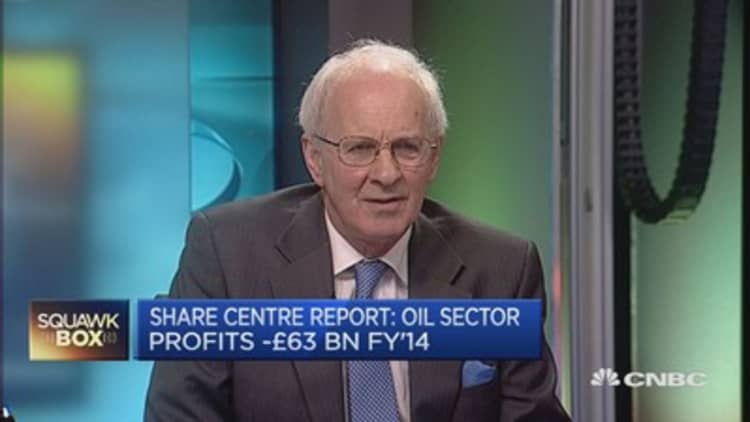What's interesting about Europe's first-quarter earnings is that better-than-expected results are not just down to the weak euro's boost to exports --domestic companies are also making a killing, Barclays said in a note Monday.
"While exporters are beating estimates helped by a weaker euro, domestically focussed stocks are also beating estimates – but by a greater margin," analysts at the British bank said in the note.
Barclays said that its basket of 50 domestically focused stocks in the euro area were seeing better-than-expected sales and earnings per share (EPS) than 50 exporters. It added that the trend was also clear across sectors such as banks, transport and utilities.
For example, French banks Societe Generale and Credit Agricole last week posted quarterly results that were above analyst expectations, helped by a recovery in Europe's economy. German car maker BMW said last week that its underlying earnings rose more than 20 percent to 2.52 billion euros ($2.84 billion) in the first quarter, beating analysts' forecasts.
Meanwhile The pan-European Euro Stoxx 600 index has soared 18 percent so far this year, outpacing a 2.8 percent gain in the S&P 500 index of U.S. stocks, and a 12 percent rally in Japan's blue-chip Nikkei.
Barclays said the strength in earnings from companies with a focus on the domestic economy was linked to signs of a pick-up in euro zone growth, which has received a boost from European Central Bank monetary stimulus.
Concrete signs of this pick-up could be seen Wednesday when first-quarter gross domestic product (GDP) numbers for the euro zone are due out with analysts polled by Reuters forecasting a 0.5 percent increase from the previous quarter.
Read More Euro zone set to report solid growth, for a change
That would put euro zone GDP ahead of the U.K., which grew 0.3 percent quarter-on-quarter in the first three months of the year and has been consistently leading Europe's big economies. The U.S. economy, the world's biggest, grew an annual rate of just 0.2 percent in the first quarter.
"There is a tendency to think we have come too far, too quickly with the rally in European equity markets," Michael Hewson, chief market analyst at CMC Markets, told CNBC. "We now want to see this confirmed in Wednesday's GDP numbers."
After years of lagging their U.S. peers, some analysts expect euro zone companies to post double-digit earnings growth this year thanks to a weaker euro, a sharp drop in oil prices and lower funding costs.
The euro has tumbled more than 20 percent against the dollar in the past year, while oil prices have fallen roughly 32 percent in the past year – delivering a powerful boost to consumers and firms.
Roughly three-quarters of the companies of the broad Euro STOXX 600 have reported earnings so far and according to Barclays, 76 percent of these firms have beaten or are in line with estimates on sales, while 67 percent have beaten or are in line on EPS.
Brighter outlook

The bank added that importantly, large firms were driving upward revisions to estimates, a good sign for the aggregate earnings per share estimate for the market.
"Since the financial crisis of 2009, earnings from euro zone corporates have lagged far behind those of their U.S. counterparts, which have already surpassed their previous peaks," James Sym, a member of the pan-European equity team at Schroders, said in a note published late last month on the European earnings outlook.
"We see this as an opportunity for European investors as euro zone earnings have the potential to stage a strong recovery from their current depressed levels," he added.
US earnings
Meanwhile across the Atlantic, analysts are still digesting a first-quarter earnings season that surprised on the upside, albeit after some downgrades to initial expectations.
Research firm Factset said over the weekend that the percentage of companies that reported actual earnings above estimates was 6.4 percent, above a five-year average of 5.4 percent.
"The joke at the bars basically is that managing your earnings should be an MBA requirement now in school," Howard Silverblatt of S&P Dow Jones Indices, quipped to CNBC on Monday.
Silverblatt - who analyses the - said that the emphasis was now on the second-quarter earnings season which he would be a "continuation" of similar trends form the first quarter. He added that technology and financial stocks were driving the market right now with regards to earnings growth.
Follow us on Twitter: @CNBCWorld



